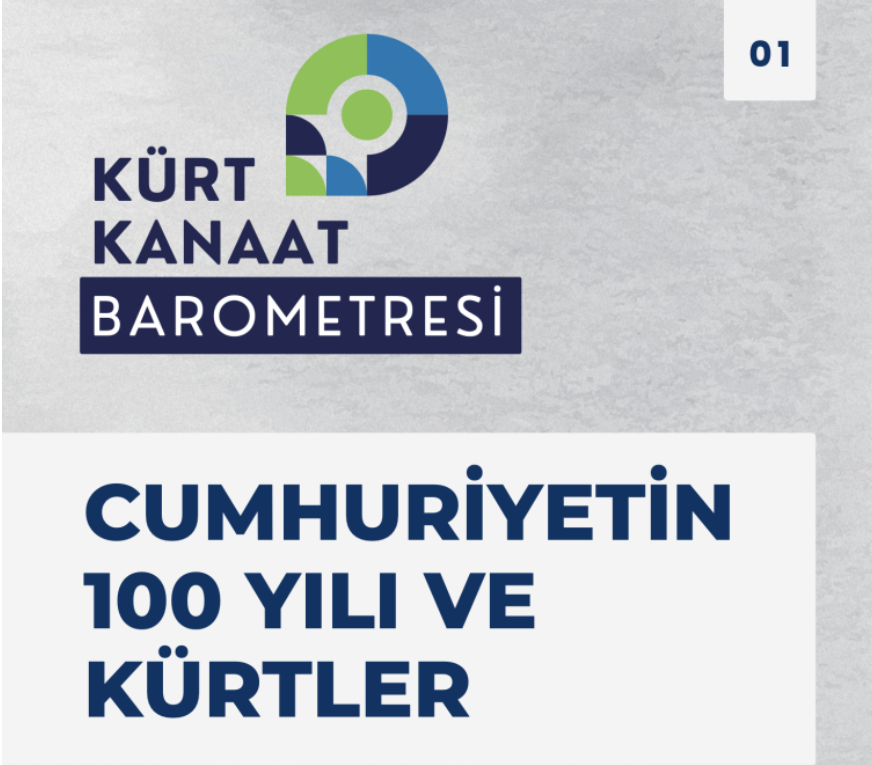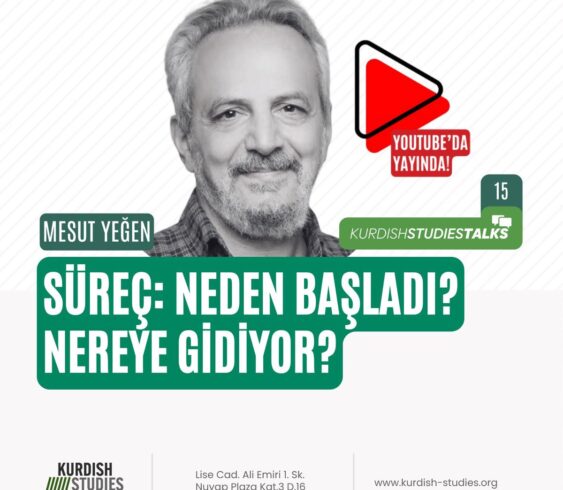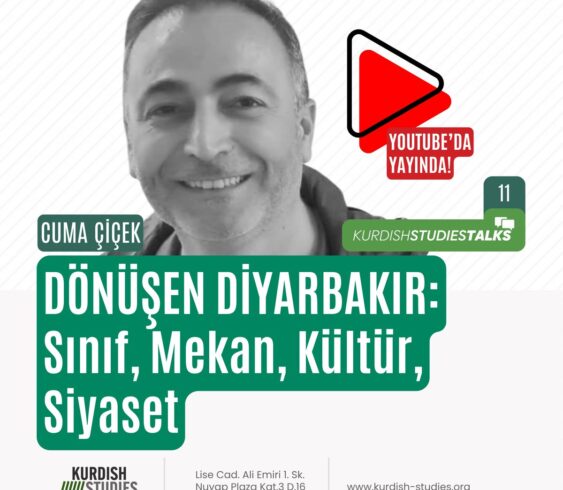Kurdish Opinion Barometer-1: 100 Years of the Republic and the Kurds

As the Kurdish Studies Center, we have shared with the public the first output of our Kurdish Opinion Barometer project, titled “100 Years of the Republic and the Kurds.”
The Opinion Barometer is a series of studies aimed at monitoring the opinions, expectations, attitudes, and demands of Kurds from the perspective of Kurdish actors.
As part of the first research phase of the Kurdish Opinion Barometer, semi-structured in-depth interviews were conducted between November and December 2023 with 40 Kurdish actors from various cities and diverse sectors such as civil society, business, media, and academia, representing different worldviews.
The report titled “100 Years of the Republic and the Kurds” sheds light on the past 100 years of the Republic of Türkiye through the eyes of Kurdish actors and offers insights into their future expectations.
The report consists of three main sections: the current state of the Kurdish issue and near-future forecasts, evaluations of the Republic’s 100-year history, and expectations for the coming century.
Current Situation:
- No progress is observed regarding the Kurdish issue; an overall negative picture is painted.
- The government’s approach to the Kurdish issue is criticized.
- Restrictions on the Kurdish language and culture are seen as a significant problem.
- Economic inequalities and development challenges are highlighted.
Near Future:
- There is little hope that positive steps will be taken regarding the Kurdish issue.
- It is expressed that violence- and security-focused policies need to be abandoned.
- A diplomacy-based approach is proposed for the future of Kurdish politics.
Republic Era:
From the perspective of Kurds, this period is characterized by repression, denial, and conflict.
The past hundred years can be classified as follows, according to the actors:
- Denial and Assimilation:
Over the past century, Kurds have struggled against the denial of their existence and assimilation policies. Repression targeting Kurdish identity, language, and culture is described as the most significant problem. -
Human Rights Violations:
Due to security policies, severe human rights violations and hardships have been experienced. -
Cultural and Political Struggle:
Despite oppression, Kurds have continued their cultural and political struggles. The Kurdish language, literature, and arts are described as important tools of this resistance. -
International Dimension and Diplomatic Efforts:
The Kurdish issue has drawn attention internationally and has occasionally been included on the agenda of international diplomacy.
Kurdish Gains:
According to the actors, despite a century under repression, Kurds have achieved significant gains. These can be listed as follows:
-
The recognition of Kurdish identity and Kurdish language as a reality
-
Political representation and the presence of Kurdish parties
-
Cultural revival
-
Recognition in the international arena
-
Civil society and human rights movements
Expectations for the Next Century
The most frequently repeated expressions about the future are “democracy,” “freedom,” and “justice.” The established sense of identity is described as a hope for the second century.
The expectations of Kurds for the second century can be summarized as follows:
- A freer and more just society,
-
A peaceful and democratic resolution of the Kurdish issue,
-
Status for Kurds and the Kurdish language,
-
Better education and job opportunities for the younger generations.
You can access the full report of the first issue of the Kurdish Opinion Barometer, titled The 100 Years of the Republic and the Kurds, via the link below.
Download PDF Report
